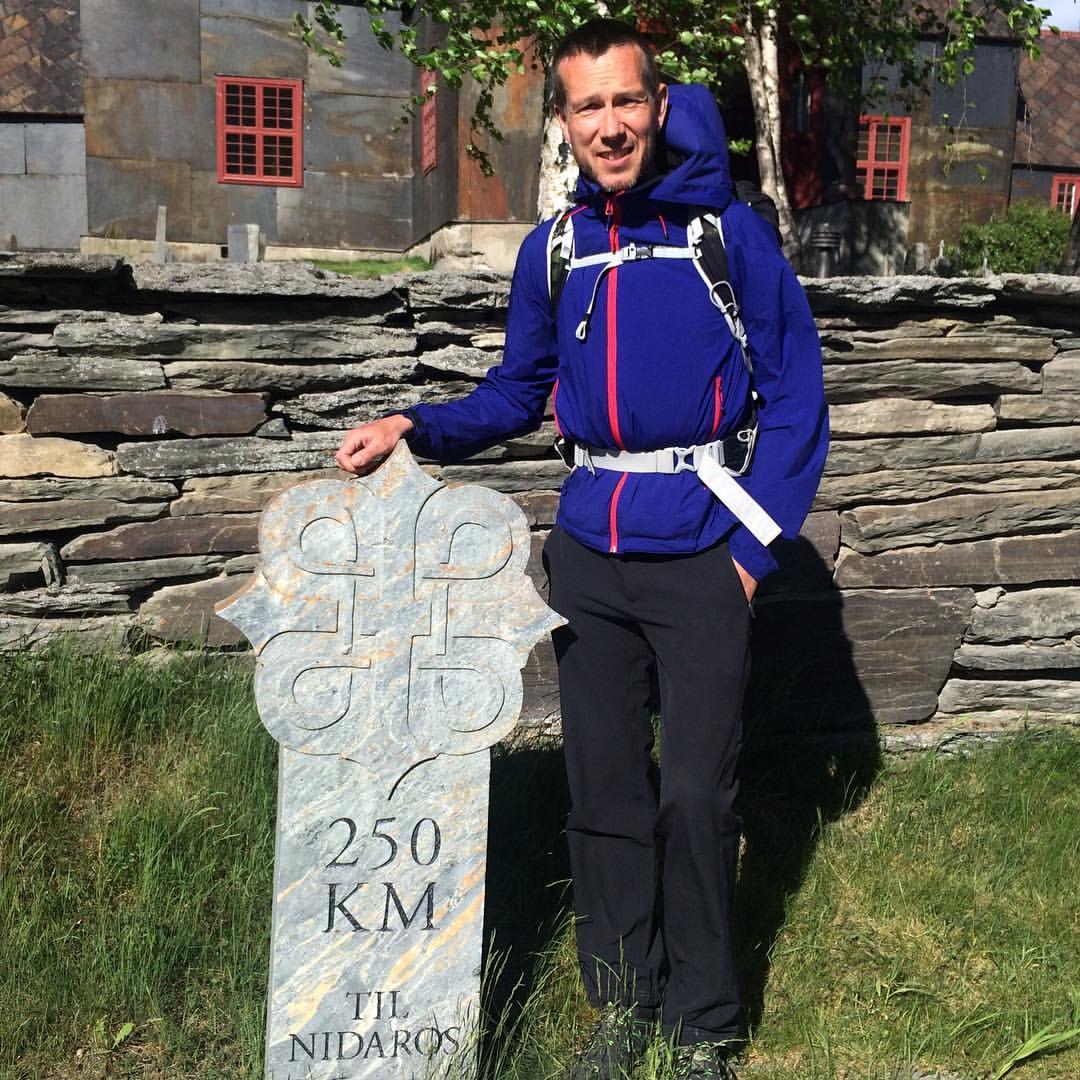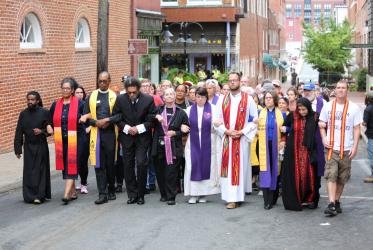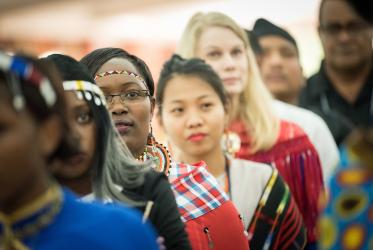By Marcelo Schneider*
Knut Refsdal started his pilgrimage from the Norwegian capital Oslo to the historic pilgrim town of Trondheim on 24 May.
He is scheduled to arrive on the eve of the opening of the meeting of the Central Committee of the World Council of Churches (WCC) on 21 June.
Knut is the general secretary of the Christian Council of Norway (CCN).
Along the 494 kilometers of the pilgrimage, he has met community leaders.
Doing so he has triggered a process of reflection, dialogue and commitment on the importance of faith and life-stance communities in Norway “to work together as partners to oppose religious extremism and hate speech”.
Actors from several areas of local society are taking part in debate that has also included conversations about the refugee crisis in Europe.
Knut has not walked alone on his pilgrimage. Besides local and national church leaders, imams and leaders of local Islamic groups have joined him.
The invitation to leaders to walk with Knut also enabled space for dialogue, like when the general secretary of a major humanist organization joined him for two days on the journey to Trondheim.
“We were hungry together, we got tired together. We took care of each other and our basic human needs became extremely clear. On the pilgrimage, we lose some of the tags and prejudgments we put on each other in life. We become fellow human beings and we see that need one another,” said Knut.
A Methodist pastor, Knut affirms that the pilgrimage from Oslo to Trondheim was inspired by the Pilgrimage of Justice and Peace, a call of the 10th Assembly of the World Council of Churches to all its member churches and people of good will.
“The Pilgrimage of Justice and Peace has been a leading star for the Christian Council of Norway in this particular time of transition that we are experiencing in the country”, he said.
“The ties between the Church and the State will be fully cut soon and the process requires reflection on a new political framework for religious groups,” he noted.
The experience of informally meeting other pilgrims on the way has also inspired Knut.
“I met Swiss, Germans, Norwegians (…) I was able to see that there is a strong connection among pilgrims,” he said.
Knut stressed that the experience of the pilgrimage has taught him some lessons.
“We have to be open to what is around us and take it as part of us,” he said.
The Methodist pastor has shared some short reflections and images of the pilgrimage through social media. He has also prepared a message to the participants of the WCC Central Committee meeting, who will leave soon from all parts of the world to gather in Trondheim.
“No matter what context you come from, no matter your religious background, remember that we are all pilgrims. We need to relate to one another and find ways together for a better future for the world”, he said.
“The basic task of the ecumenical movement is to promote reconciliation and unity - among churches and in the wider global community,” Knut added.
When asked about what global personality he would invite to join him in the pilgrimage, Knut flashed wisdom and humour.
“Maybe walking together with Mr Donald Trump could be an opportunity to discuss with him the urgent need for international cooperation, the importance of the United Nations and of global organizations, such as the WCC,” he remarked.
* Marcelo Schneider is communication officer at the WCC.
WCC's Pilgrimage of Justice and Peace









